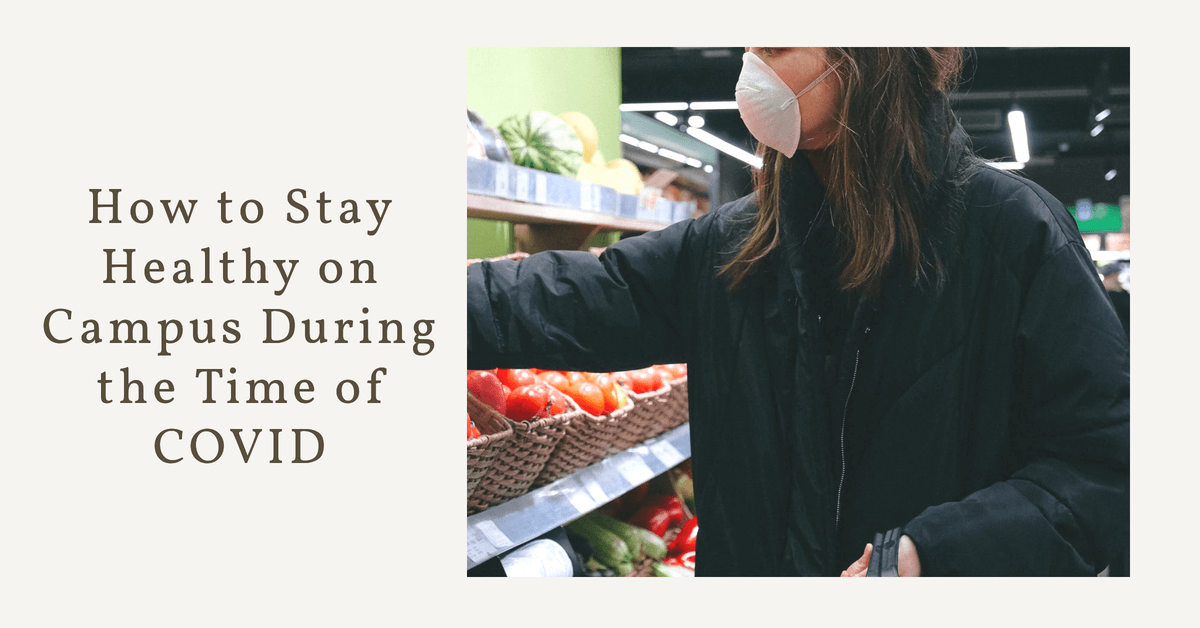How to Stay Healthy on Campus During the Time of COVID
 Going to college or university should be an exciting time, but many students find their excitement overshadowed by the COVID-19 pandemic. After Canadian public health officials began stocking response supplies in February, everyone got used to sheltering in place to slow the spread.
Going to college or university should be an exciting time, but many students find their excitement overshadowed by the COVID-19 pandemic. After Canadian public health officials began stocking response supplies in February, everyone got used to sheltering in place to slow the spread.
Now, you might feel nervous to go back to school and interact with numerous strangers every day. Ease your fears by learning how to stay safe in college or university during COVID-19 with these simple tips:
1. Maintain Your Distance
Maintaining social distancing standards is one of the first college health and safety tips regarding the coronavirus. The disease travels through airborne droplets after someone exhales, coughs or talks. Experts estimate that when people stand at least 2 meters apart or farther, the droplets fail to spread the infection because they lose velocity.
As you walk around campus, always stay distanced from other students. If you have roommates, start a discussion about the importance of social distancing. Once you’re on the same page, you’ll decrease your chance of getting sick.
2. Stock Up on Masks
Health officials advise the public to wear masks when social distancing isn’t possible. Stock up on non-medical masks and facial coverings before going back to school. They’ll protect you when you attend indoor classes and other social settings. Masks also protect the people around you, which is critical in mitigating the pandemic.
3. Avoid Peer Pressure
Peer pressure doesn’t end with grade school. Some friends, classmates and other people in your life might peer pressure you to leave your mask at home. Even with multiple preventative resources at their disposal, students still throw parties and test positive at numerous campuses.
Remember to protect your health and those around you by saying no to parties and group gatherings. There will be a time and place to do so later when it’s safe for everyone.
4. Create a Cleaning Plan
Your university may have a cleaning plan in place, but you can sanitize spaces as well. Businesses recognize the importance of thorough cleanings and create detailed cleaning plans to set an example of how everyone can return to a new normal.
Establish a personal cleaning plan by talking with your roommates about how frequently everyone will sterilize doorknobs and countertops. You can also carry hand sanitizer and wipes to clean your desk before starting each class.
5. Find Local Health Resources
Even if you feel lonely from social distancing, you’re not alone during this pandemic. Find local health resources to increase your campus safety during COVID-19. Connect with the on-campus health clinic to learn their rules regarding testing availability.
You can also check local testing resources according to your province or territory. Some areas require patients to currently exhibit symptoms before receiving a test and others don’t. Stay up to date on access to testing so you always know where to go if you’re worried you contracted COVID-19.
6. Wash Your Hands
Hand-washing might seem too simple to fight disease during a pandemic, but it’s more important than ever before. After going to class, getting food on campus or handling anything in a public area, wash your hands for 20 seconds and turn the tap off with a paper towel.
Although COVID-19 is an airborne disease, it can survive on different surfaces for days at a time. Washing your hands prevents you from getting sick after touching your eyes or nose.
Stay Determined and Safe
After months of living with these safety precautions, sometimes people become tired. When you feel tempted to leave your mask at home or attend a party, remember that you’re protecting yourself and others by staying determined. Now that you know how to stay safe in college or university during COVID-19, you can focus on pursuing your educational goals.
About the Author
Alyssa Abel is an experiential education writer with a love for learning. Read more of her work for students and educators on her blog, Syllabusy.


